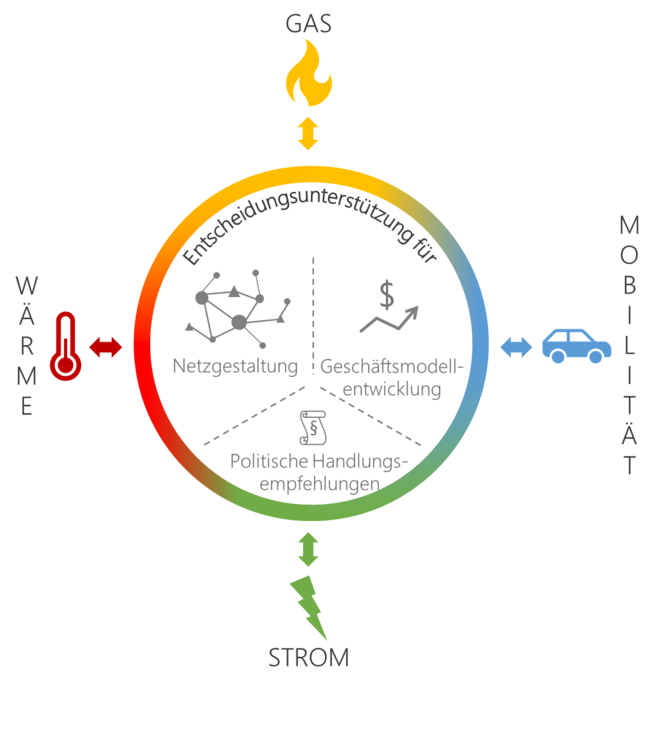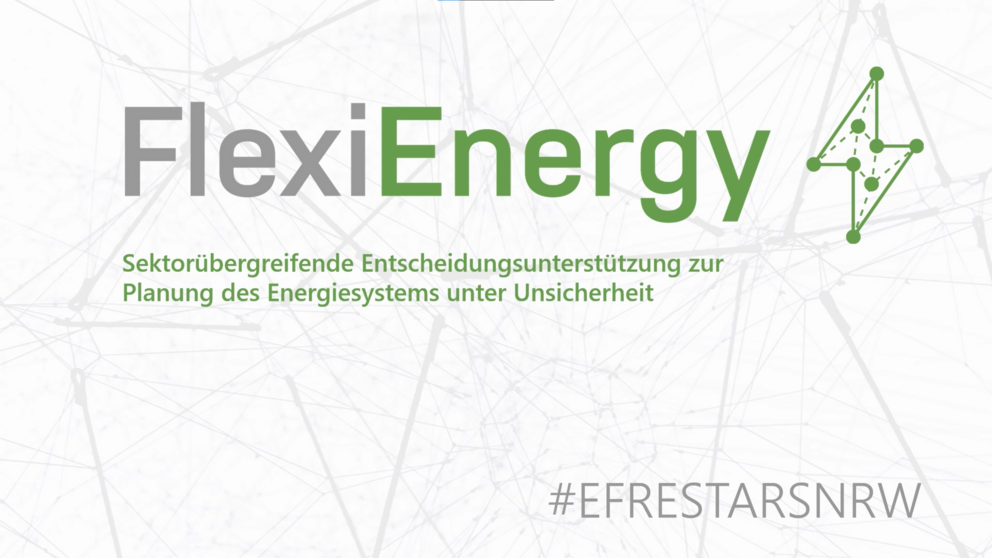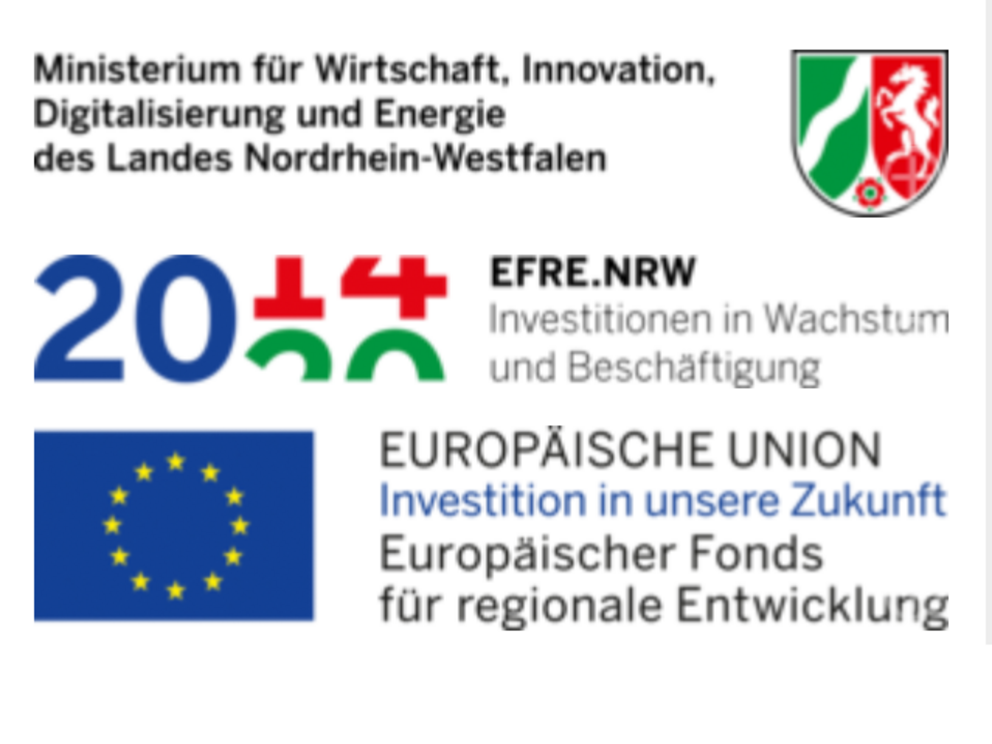Motivation
Against the backdrop of rising demand for energy and the finite nature of fossil fuels such as oil and gas, the German government has set the target of increasing the share of electricity from wind and solar power in gross final energy consumption from the current level of around 15 per cent to 60 per cent by 2050. There is still a long way to go. This raises the question of how the future energy system should be organised in the face of increasingly volatile energy generation.
Projects and goals

Cross-sectoral planning of energy grids (i.e. integrated consideration of electricity, gas, district heating and mobility) offers the opportunity to utilise synergies between different energy sources and thereby make energy systems more cost-efficient and lower in CO2 emissions, as well as ensuring the stability of the grids in the future. However, integrated planning also increases complexity, as many influencing factors with their interactions, different interests of the stakeholders involved (i.e. supply companies, grid operators and politicians) and uncertainties must be taken into account in the planning process.
For this reason, this project aims to develop a decision support system that supports the stakeholders involved in this planning and transformation process and provides recommendations for the future design of energy systems. In addition to recommendations for future grid design, recommendations for the design of business and tariff models as well as regulatory policy recommendations are also to be derived.
Innovation
In order to achieve these goals, the project will first develop a knowledge system that maps the complex and uncertain influencing factors, including their interactions, and presents them transparently for the decision-maker. Various future scenarios can be derived from this, which make it possible to consider different options for action within the decision-making process. Furthermore, simulation and optimisation models for the integrated planning of the electricity, gas, heat and mobility sectors will be developed so that the most robust and flexible solutions for grid design can be identified. It can be assumed that the energy transition will result in a shift in value-added shares and new market roles and business areas. The project is therefore developing innovative business and tariff models that are aimed at so-called "prosumers" (a consumer who is also a producer), for example, or that address new concepts such as neighbourhood grids and tenant electricity models.
Finally, the decision support system will be piloted using the case studies of the project partners involved. This will ensure broad application of the methodology to be developed and at the same time produce concrete recommendations for action for grid operators, energy supply companies and policymakers.


